Cheat Sheet 22: Reproductive System
1/58
There's no tags or description
Looks like no tags are added yet.
Name | Mastery | Learn | Test | Matching | Spaced | Call with Kai |
|---|
No analytics yet
Send a link to your students to track their progress
59 Terms
Gonads
Reproductive structures responsible for producing gametes.
Ovary
Produces eggs (ova). Females have two ovaries.
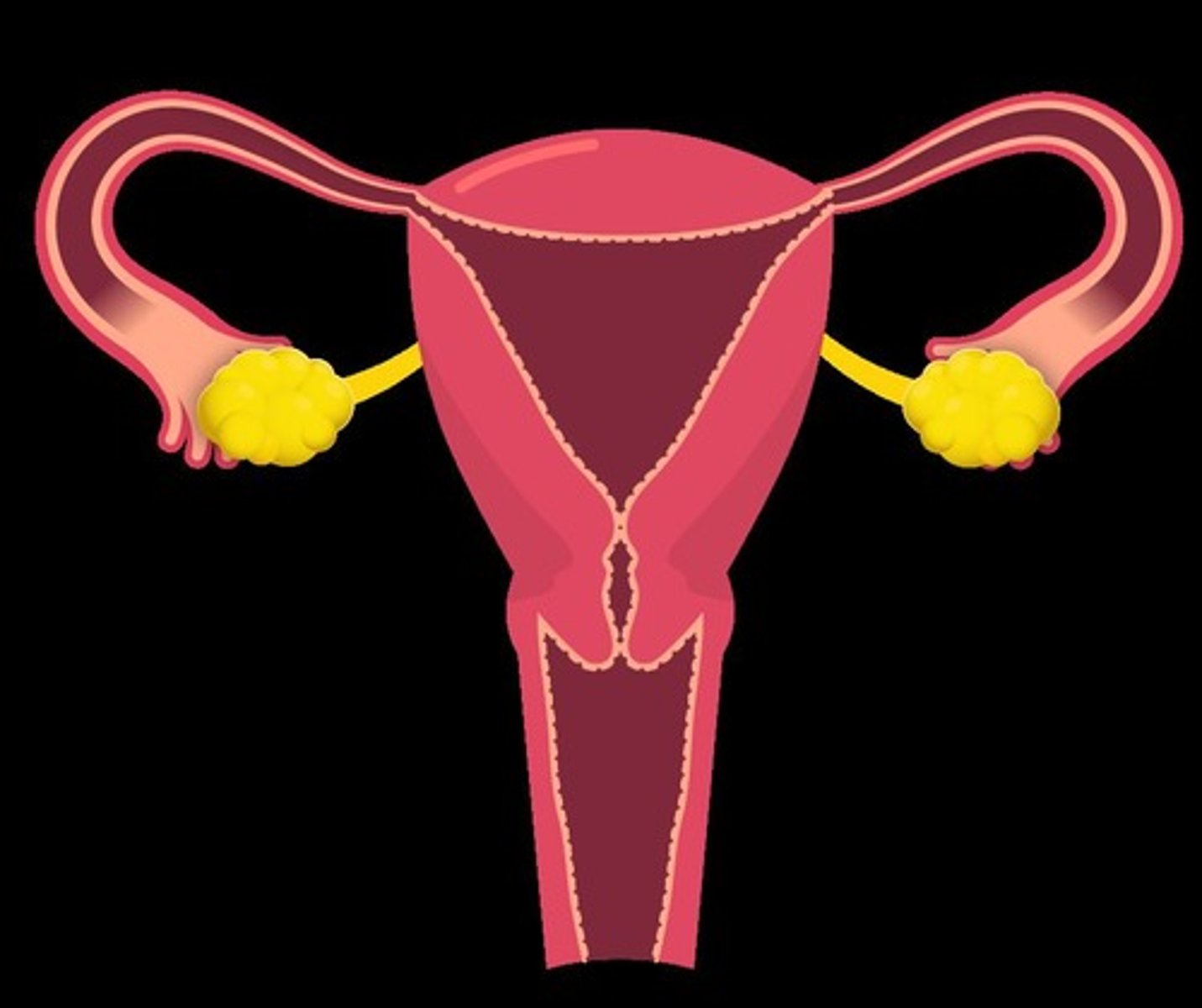
Testis
Site of sperm and male sex hormone production enclosed within the scrotum for temperature regulation.
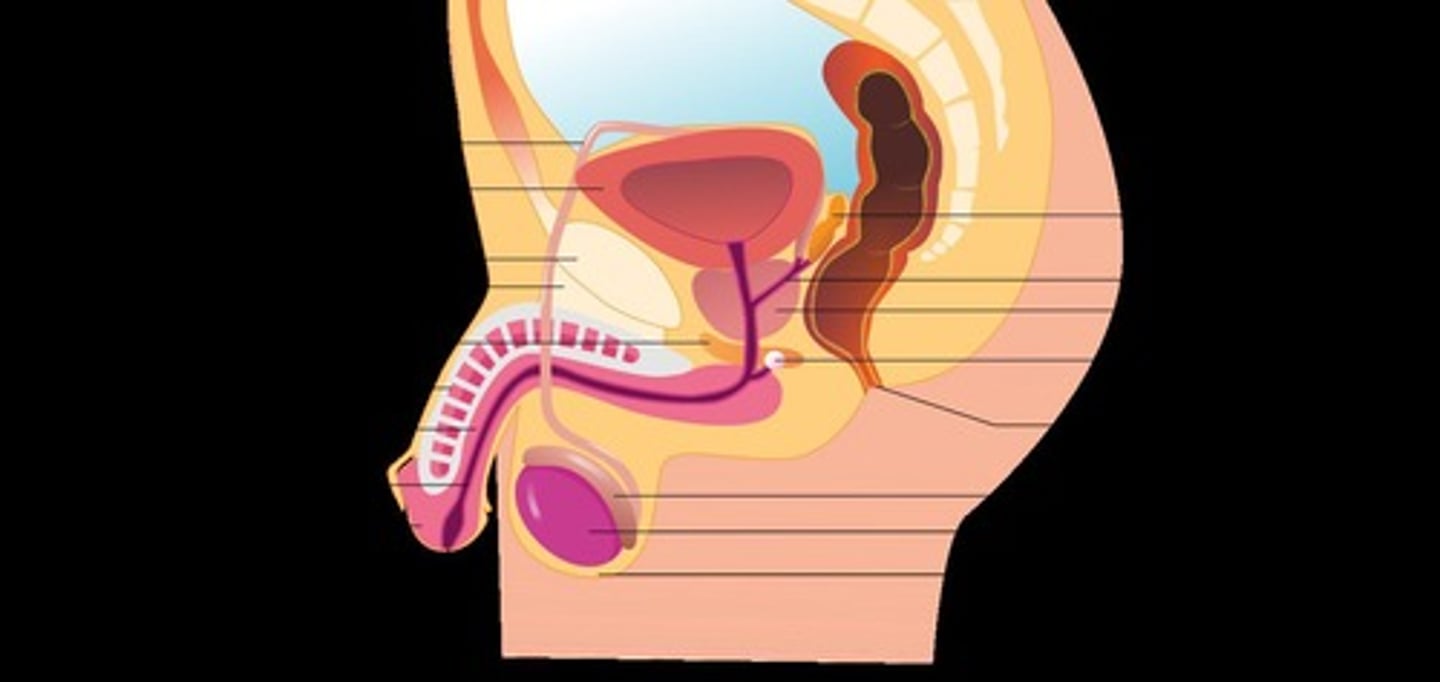
Somatic cell
Diploid, non-reproductive cells (E.g., muscle cells, skin cells, nerve cells).
Germ cell
Diploid cells of embryonic origin and gives rise to gametes via meiosis (E.g., spermatogonium, oogonium).
Gamete
Haploid sex cells (E.g., egg and sperm).
Viviparity
Birth to live young that receive nutrients directly from the mother's body.
Oviparity
Fertilized eggs get laid then hatch later.
Ovoviviparity
Internally fertilized eggs hatch and give birth to live young who continue to receive nutrients from the yolk of the egg.
Oviduct (Fallopian/Uterine Tube)
Responsible for moving the eggs from the ovary to the uterus; site of fertilization (where the sperm meets the egg).
Sertoli cells
Stimulated by FSH and surround and nurture the sperm.
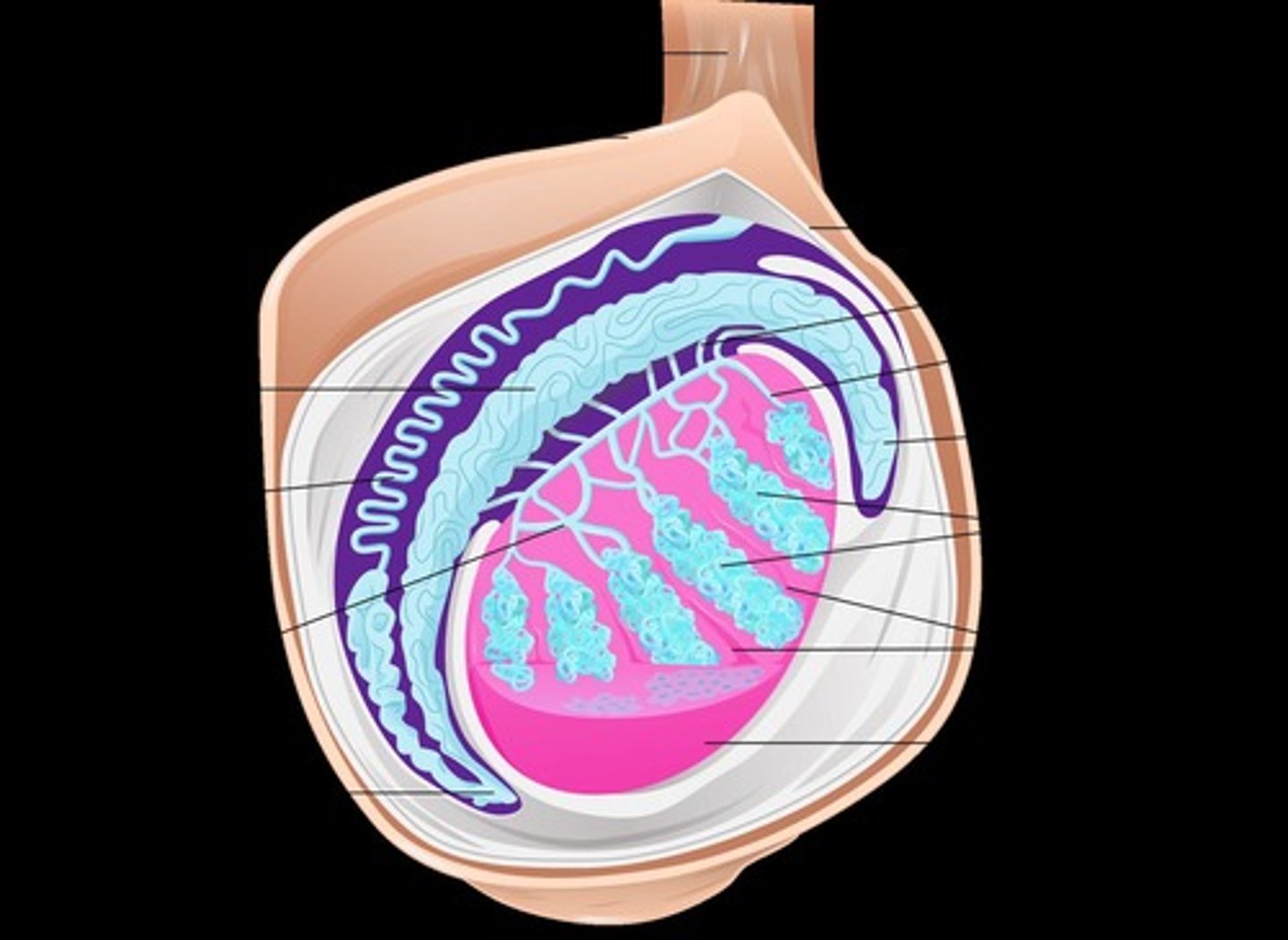
Fimbriae
Sweep the egg into the fallopian tube once released from the ovary.
Interstitial cells (Leydig cells)
Secrete male hormones (E.g., testosterone and androgens) in the presence of LH.
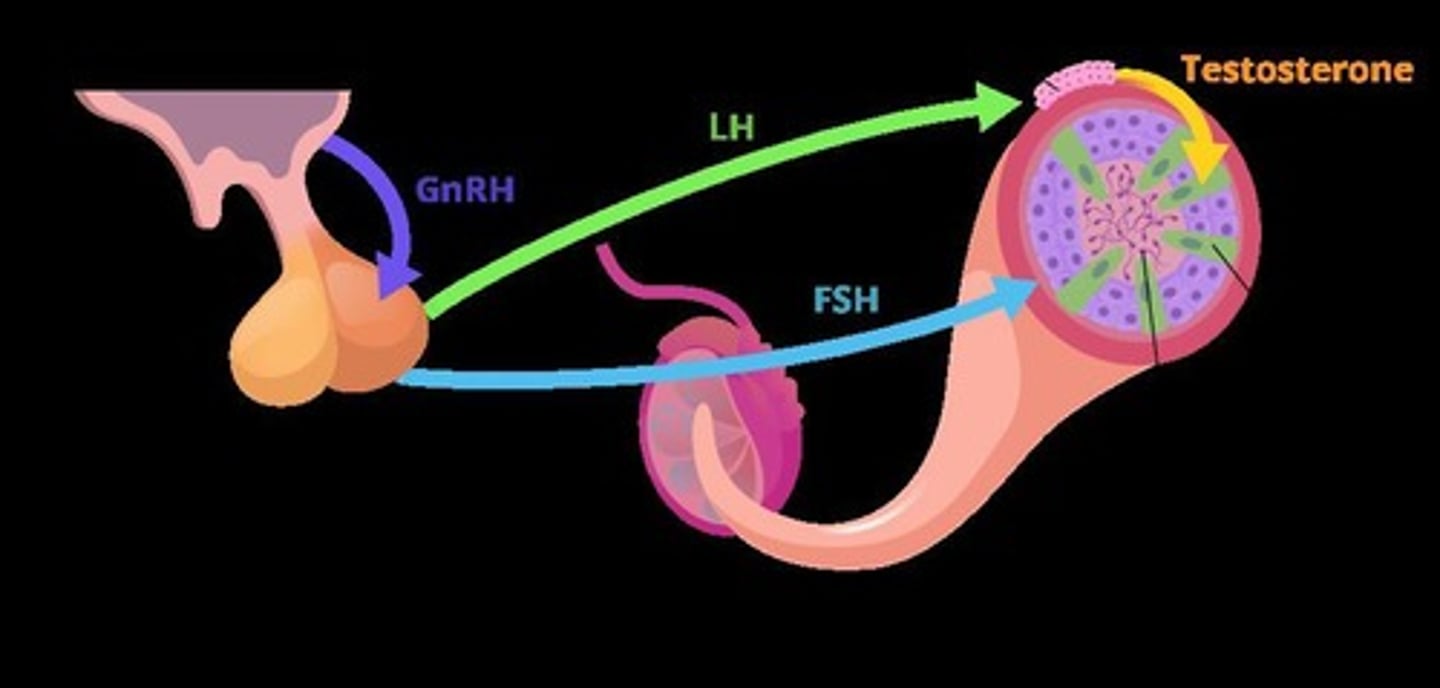
Cervix
The muscular canal that connects the vagina to the uterus.
Uterus
Muscular chamber in which the embryo develops until birth; zygote attaches to uterine wall after fertilization.
Vagina
Muscular canal that serves as a birth canal during delivery; connected to the uterus via the cervix.
Epididymis
Coiled tube attached to each testicle that serves as the site of final sperm maturation and storage.
Vas deferens
Transfers sperm from each epididymis to the urethra.
Seminal vesicles
Excrete fluid into the vas deferens upon ejaculation.
Penis
Transports semen into vagina.
Acrosome
Lysosome-like organelle that penetrates the egg.
Pro-nucleus
Haploid (23 chromosomes).
Mid-piece
Plethora of mitochondria for energy.
Tail
Flagellum that produces motion.
Blastocyst
Stage of early embryonic development that follows the morula stage.
Morula
A solid ball of cells resulting from the division of a fertilized ovum.
Zygote
Fertilized egg.
Implantation of blastocyst
The process where the blastocyst attaches to the uterine wall.
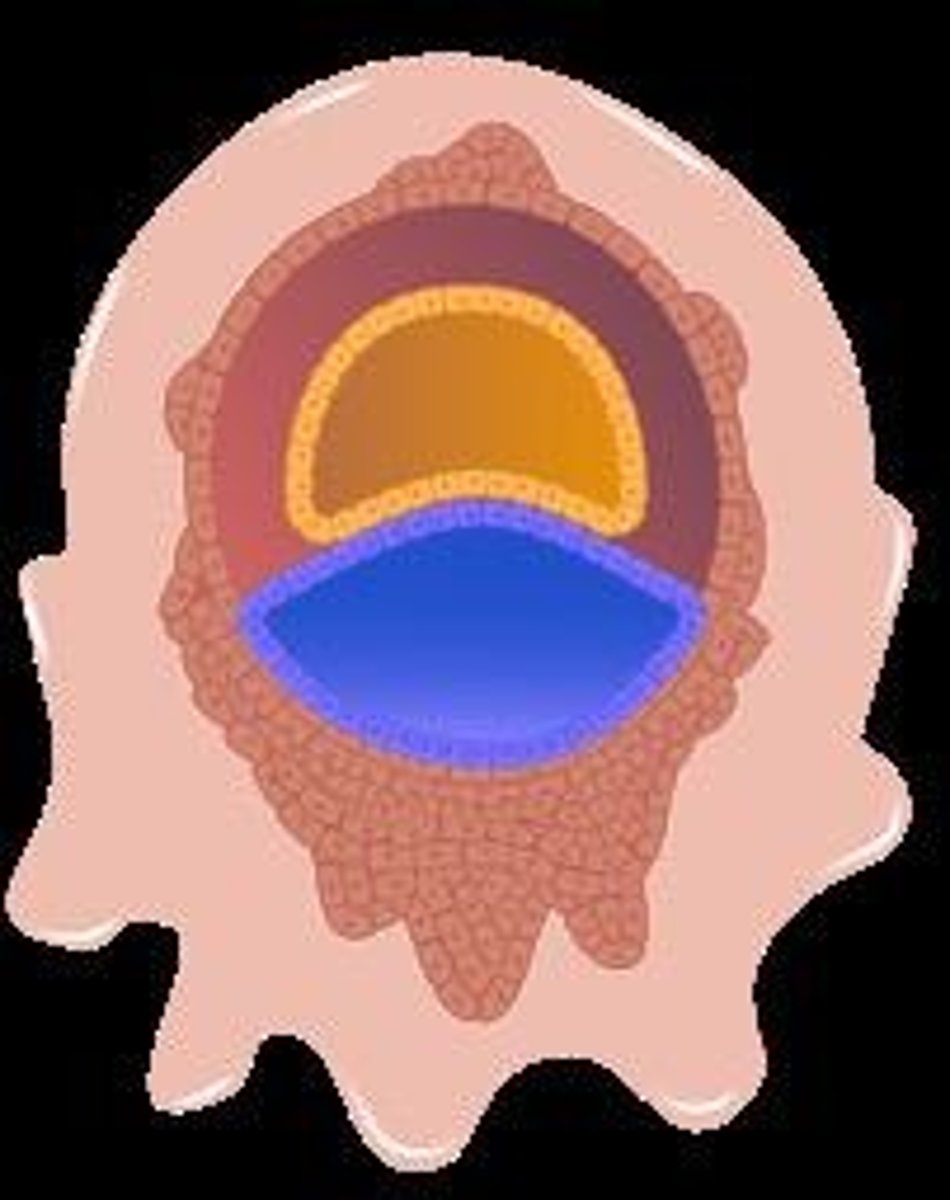
Week 5
Heart begins beating.
Week 8
Development of embryo has reached fetus stage.
Week 40
Development has reached full term.
Oogenesis
The process of egg formation in females.
Spermatogenesis
The process of sperm formation in males.
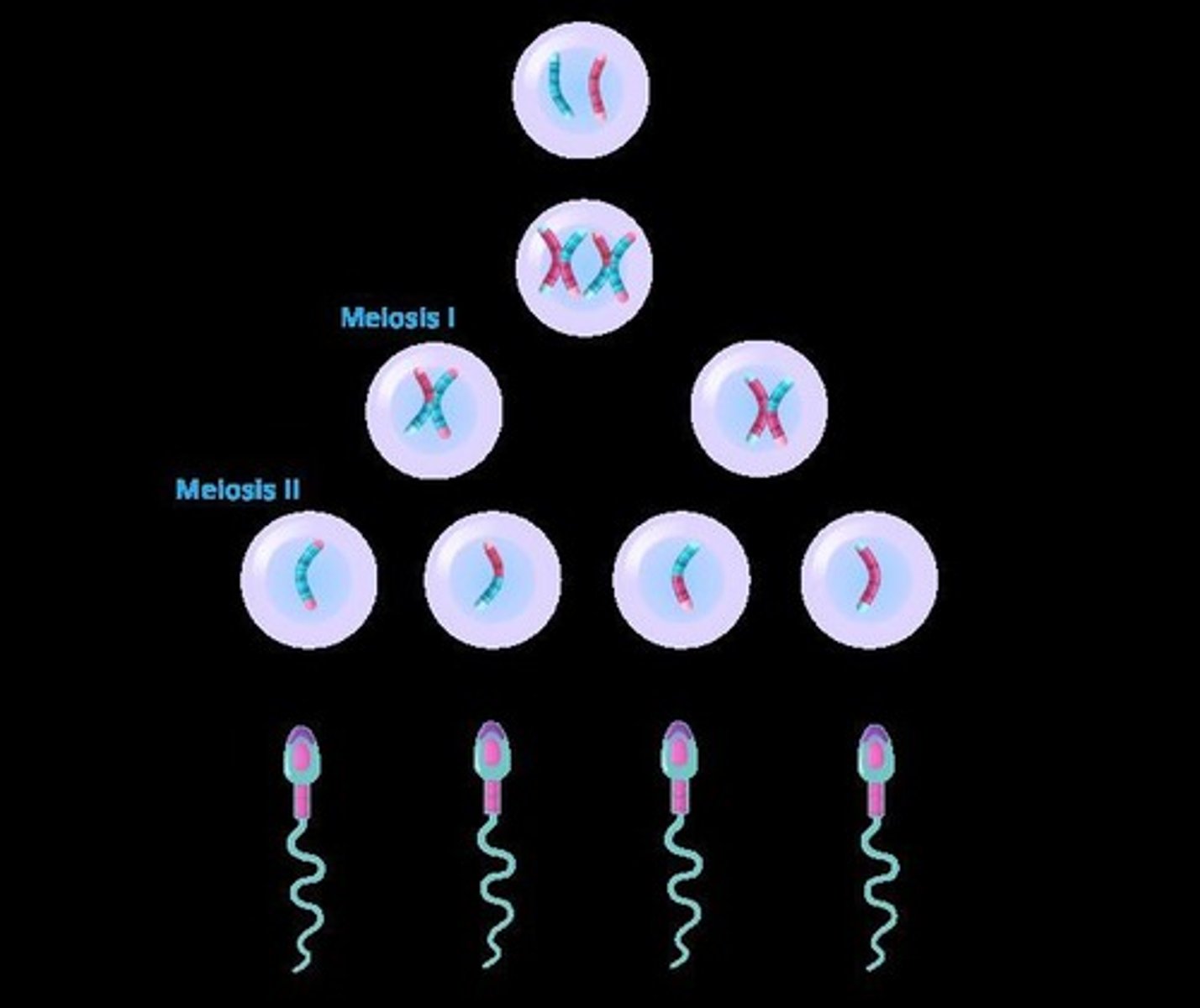
Primary oocytes
Oogonia that have begun meiosis but stopped in prophase I.
Primordial follicle
Structure formed when primary oocytes are surrounded by a single layer of granulosa cells.
Primary follicles
Follicles that develop from primordial follicles when granulosa cells enlarge and increase in number.
Secondary follicles
Follicles that form when fluid-filled vesicles develop and theca cells arise on the outside.
Mature follicles
Follicles that form when vesicles create a single antrum.
Follicular phase
The phase of the menstrual cycle involving the development of the egg and secretion of estrogen.
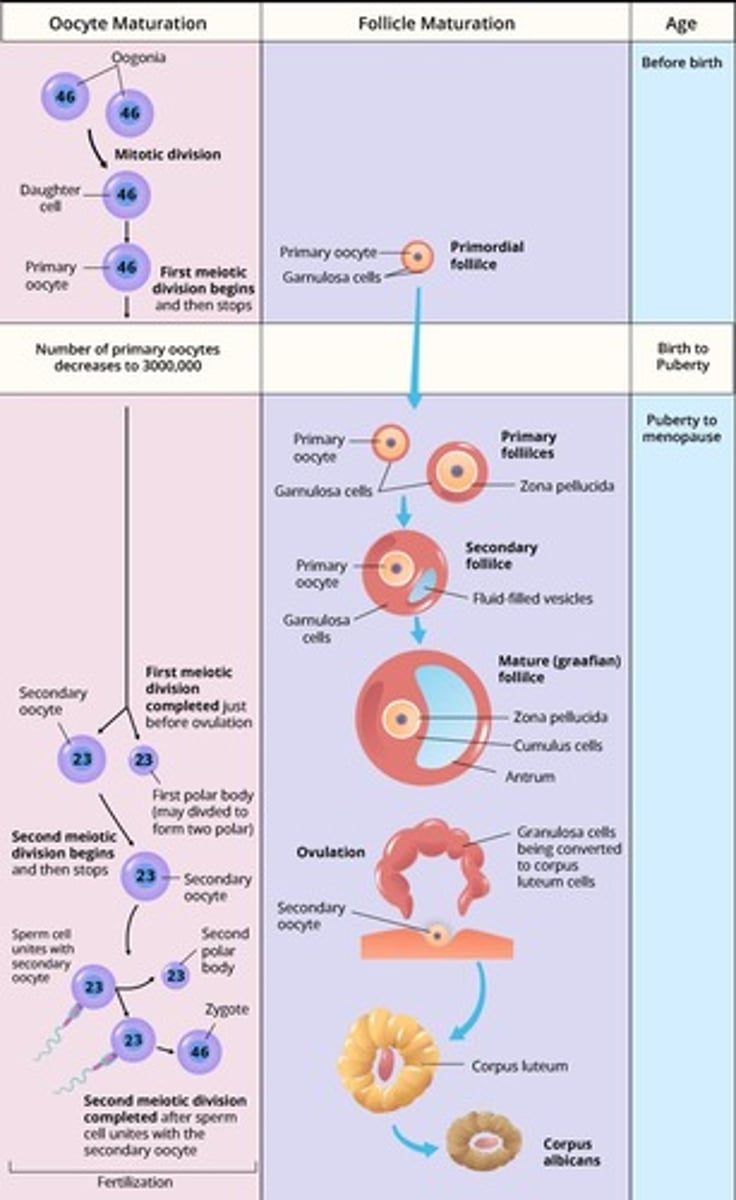
Ovulation
The midcycle release of the egg, triggered by a surge of LH.
Luteal phase
The phase following ovulation characterized by secretion of estrogen and progesterone from the corpus luteum.
Secondary oocyte
An oocyte that is released from the ovary and completes meiosis II only if fertilized.
Corpus luteum
The structure formed from the remaining follicle after ovulation that secretes hormones.
Corpus albicans
The scar formed when the corpus luteum degenerates if the egg is not fertilized.
Human chorionic gonadotropin (hCG)
Hormone secreted by the placenta that maintains the corpus luteum during pregnancy.
Negative feedback loop
A regulatory mechanism where increased hormone levels suppress further hormone release.
GnRH
Gonadotropin-releasing hormone released by the hypothalamus to stimulate FSH and LH release.
FSH
Follicle-stimulating hormone that promotes the development of sperm and follicles.
LH
Luteinizing hormone that triggers ovulation and testosterone release.
Leydig cells
Cells in the testes that produce testosterone in response to LH.
Sertoli cells
Cells in the testes that support and promote the development of sperm.
Estrogen
Hormone produced by follicles that regulates the menstrual cycle.
Progesterone
Hormone produced by the corpus luteum that prepares the endometrium for implantation.
Menstrual Cycle
The monthly cycle of changes in the female reproductive system, including the follicular, ovulation, and luteal phases.
Fertilization
The process by which a sperm cell unites with an oocyte to form a zygote.
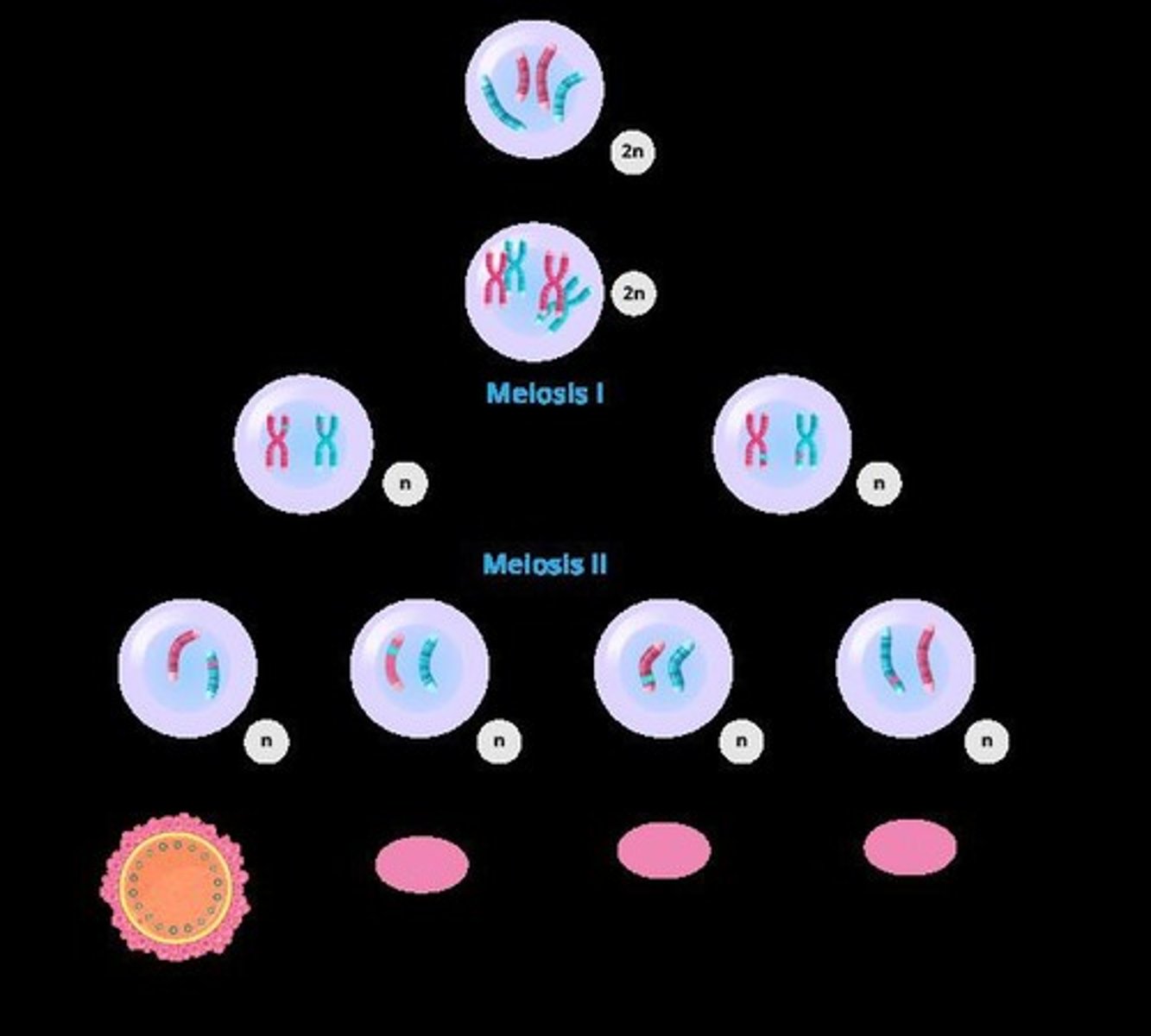
Epididymis
The structure where sperm are stored after maturation in the testes.
Testes
Male reproductive organs where spermatogenesis occurs.
Fallopian tube
The tube through which the egg travels from the ovary and where fertilization occurs.
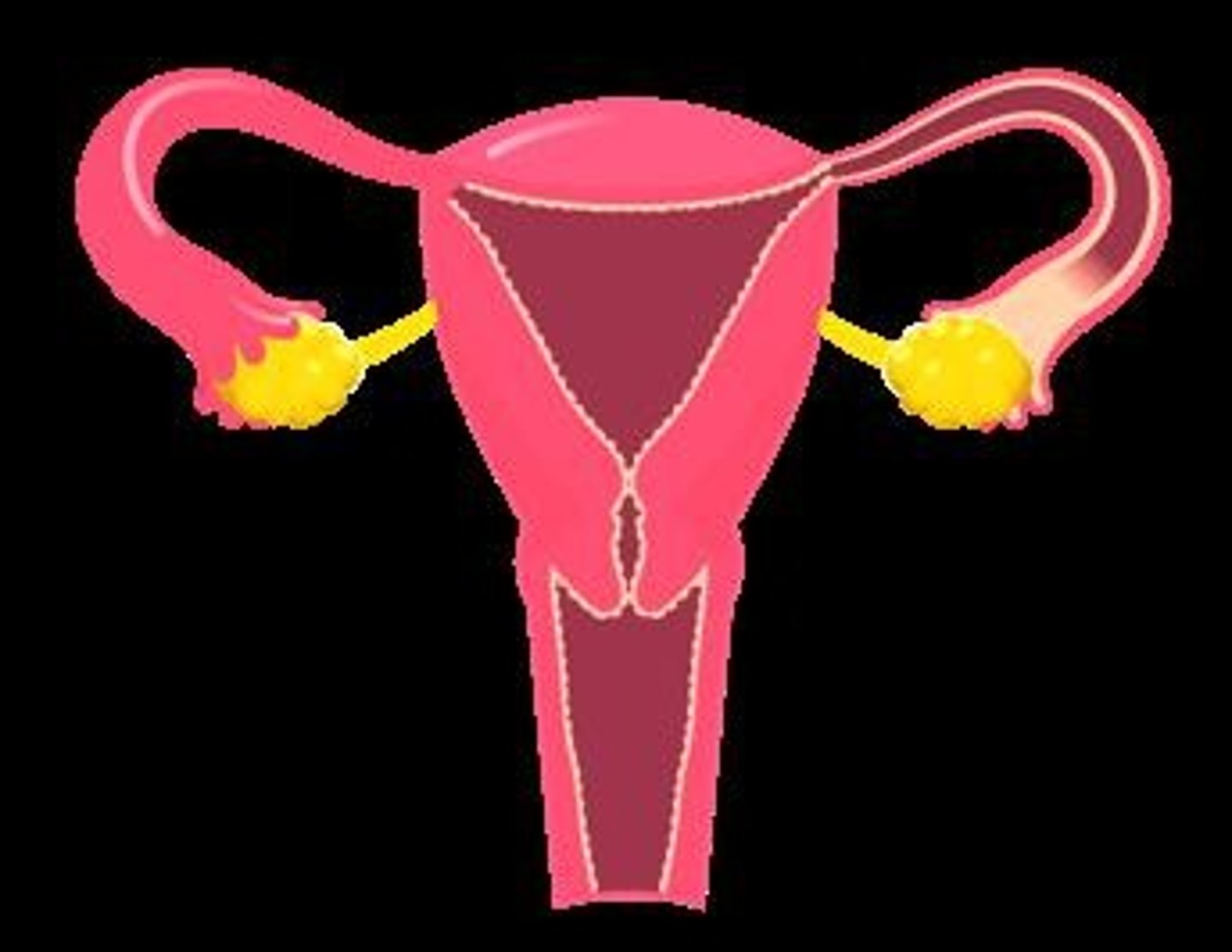
Granulosa cells
Cells that surround oocytes and are involved in follicle development.